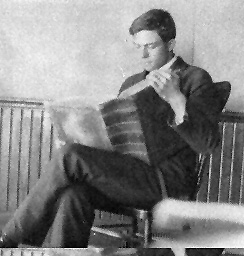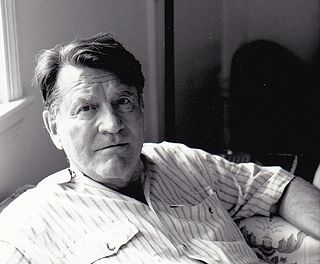Related Research Articles

Hypnosis is a human condition involving focused attention, reduced peripheral awareness, and an enhanced capacity to respond to suggestion.
Hypnotherapy, also known as hypnotic medicine, is the use of hypnosis in psychotherapy. The efficacy of hypnotherapy is not well supported by scientific evidence, and, due to the lack of evidence indicating any level of efficacy, it is regarded as a type of alternative medicine by reputable medical organisations such as the National Health Service.
Psychotherapy is the use of psychological methods, particularly when based on regular personal interaction, to help a person change behavior, increase happiness, and overcome problems. Psychotherapy aims to improve an individual's well-being and mental health, to resolve or mitigate troublesome behaviors, beliefs, compulsions, thoughts, or emotions, and to improve relationships and social skills. Numerous types of psychotherapy have been designed either for individual adults, families, or children and adolescents. Certain types of psychotherapy are considered evidence-based for treating some diagnosed mental disorders; other types have been criticized as pseudoscience.
Neuro-linguistic programming (NLP) is a pseudoscientific approach to communication, personal development and psychotherapy, that first appeared in Richard Bandler and John Grinder's 1975 book The Structure of Magic I. NLP asserts that there is a connection between neurological processes, language and acquired behavioral patterns, and that these can be changed to achieve specific goals in life. According to Bandler and Grinder, NLP can treat problems such as phobias, depression, tic disorders, psychosomatic illnesses, near-sightedness, allergy, the common cold, and learning disorders, often in a single session. They also say that NLP can model the skills of exceptional people, allowing anyone to acquire them.

Milton Hyland Erickson was an American psychiatrist and psychologist specializing in medical hypnosis and family therapy. He was the founding president of the American Society for Clinical Hypnosis. He is noted for his approach to the unconscious mind as creative and solution-generating. He is also noted for influencing brief therapy, strategic family therapy, family systems therapy, solution focused brief therapy, and neuro-linguistic programming.
Richard Wayne Bandler is an American writer, consultant, and public speaker in the field of self-help. With John Grinder, he founded the neuro-linguistic programming (NLP) approach to psychotherapy in the 1970s, which is considered pseudoscience.
Clinical psychology is an integration of human science, behavioral science, theory, and clinical knowledge for the purpose of understanding, preventing, and relieving psychologically-based distress or dysfunction and to promote subjective well-being and personal development. Central to its practice are psychological assessment, clinical formulation, and psychotherapy, although clinical psychologists also engage in research, teaching, consultation, forensic testimony, and program development and administration. In many countries, clinical psychology is a regulated mental health profession.
Integrative psychotherapy is the integration of elements from different schools of psychotherapy in the treatment of a client. Integrative psychotherapy may also refer to the psychotherapeutic process of integrating the personality: uniting the "affective, cognitive, behavioral, and physiological systems within a person".

Jay Douglas Haley was one of the founding figures of Problem-solving brief therapy and family therapy in general and of the strategic model of psychotherapy, and he was one of the more accomplished teachers, clinical supervisors, and authors in these disciplines.
Covert hypnosis is an attempt to communicate with another person's unconscious mind without informing the subject that they will be hypnotized. It is also known as conversational hypnosis or sleight of mouth.. It is a term largely used by proponents of neuro-linguistic programming (NLP), a pseudoscientific approach to communication and interaction.
Daniel David is a Romanian academic. He is "Aaron T. Beck" professor of Clinical Psychology and Psychotherapy at the Babeș-Bolyai University, Cluj-Napoca. He was the head of the Department of Clinical Psychology and Psychotherapy of the Babeş-Bolyai University between 2007 and 2012. Daniel David is also an adjunct professor at Icahn School of Medicine at Mount Sinai and is the head of the Research Program at Albert Ellis Institute in New York.
The methods of neuro-linguistic programming are the specific techniques used to perform and teach neuro-linguistic programming, which teaches that people are only able to directly perceive a small part of the world using their conscious awareness, and that this view of the world is filtered by experience, beliefs, values, assumptions, and biological sensory systems. NLP argues that people act and feel based on their perception of the world and how they feel about that world they subjectively experience.
Connirae Andreas is an American author and psychotherapist who is known for her work within the field of Neuro-linguistic programming (NLP).

Stephen R. Lankton, MSW, DAHB is a psychotherapist, consultant, and trainer. He is the current Editor-in-Chief of the American Journal of Clinical Hypnosis (2005–2025). He is a recipient of the American Society of Clinical Hypnosis' "Lifetime Achievement Award" and “Irving Sector Award for Advancement of the Field of Hypnosis”. as well as the Milton H. Erickson Foundation “Lifetime Achievement Award for Outstanding Contributions to the Field of Psychotherapy.”

Michele Weiner-Davis is a licensed clinical social worker, marriage and family therapist and author in the field of family therapy. She is frequently quoted in the media and has been interviewed significantly on television news programs regarding divorce prevention. Weiner-Davis has often been referred to as The Divorce Buster after coining the term “divorce busting” at an American Association for Marriage and Family Therapy conference in 1989. She currently writes a regular column, Divorce Busting: Musings From an Unabashed Marriage Saver in Psychology Today.
Nicholas Andrew Cummings was an American psychologist and author.

Michele Dee Klevens Ritterman is an American clinical psychologist and family therapist. She authored Using Hypnosis in Family Therapy, a book that integrates family therapy and hypnotherapy. Ritterman has worked extensively with survivors of political torture and their families. Her work has been translated into Spanish, German, Italian, and French.
Cloé Madanes has an educational background specialising in family and grief therapy. She is currently collaborating with Tony Robbins (2002) to train strategic interventionists in finding solutions to resolve interpersonal conflict, prevent violence, and contribute to the creation of a more cohesive and civil community.
Michael D. Yapko is a clinical psychologist and author, whose work is focused on the areas of treating depression, developing brief psychotherapies and advancing the clinical applications of hypnosis.
Isaac Gubel was an Argentine psychiatrist and hypnotist.
References
- ↑ " Confluence, Volume I
Jeffrey K. Zeig". www.selfesteemshop.com. Archived from the original on 2011-07-16. Retrieved 2010-02-10. - ↑ "IJCEH - International Journal of Clinical & Experimental Hypnosis - Milton H. Erickson Foundation". ijceh.com. Archived from the original on 2011-07-13. Retrieved 2010-02-10.
- ↑ "Evolution of Psychotherapy 2009 Conference". www.evolutionofpsychotherapy.com. Retrieved 2010-02-10.
- ↑ "The Haven Shen » Evolution of Psychotherapy Conference 2009". www.haven.ca. Archived from the original on 2012-11-13. Retrieved 2010-02-10.
- ↑ "Brief Therapy Conference - San Diego". Association for Contextual Behavioral Science. Archived from the original on 2012-07-22. Retrieved 2010-02-10.
- ↑ "Jeffrey K. Zeig PhD - 2nd NLP World Congress, January 2009, Rio". www.nlp-worldcongress.net. Archived from the original on 2008-11-19. Retrieved 2010-02-10.